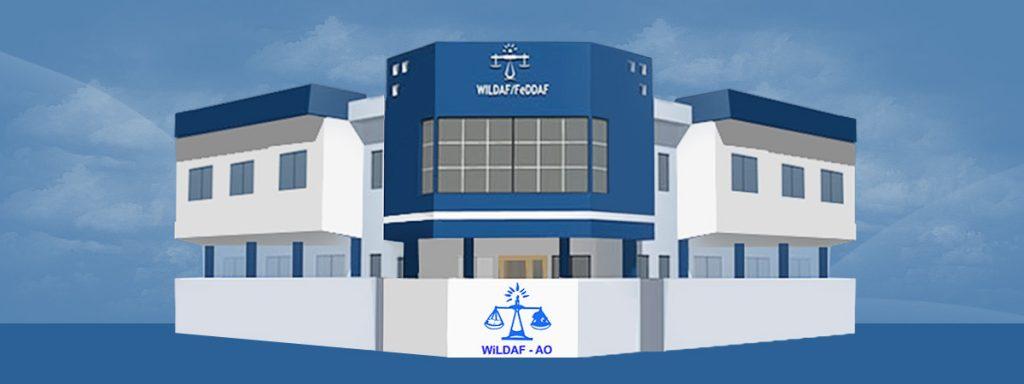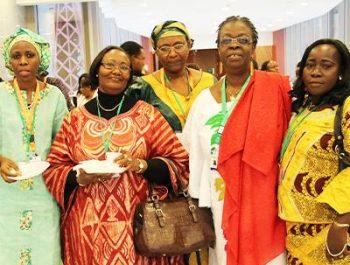Who we are

WiLDAF, Sub Regional Office for West Africa was established in April 1997. It is part of a pan African women’s rights network established in 1990, initially based in Harare, but now based in Lomé, Togo. It dedicated to promoting and strengthening strategies which link law and development to increase women’s participation and influence at the community, national and international levels. WiLDAF brings organisations and individuals who share this objective and who are operating at local, national and regional levels to make it a reality. It is the first African network specialising in the promotion of women’s rights as an integral part of development issues.
WiLDAF-AO has national offices in 11 West Africa countries namely, Benin, Burkina Faso, Côte d’Ivoire, Guinea, Ghana, Liberia, Mali, Niger, Nigeria, Senegal and Togo. The other countries of the region Cape Verde, Gambia, Mauritania and Sierra Leone, benefit also some of its projects.

- GOAL
Bringing together organisations and individuals using a variety of tools including law to promote a culture for the exercise of and respect for women’s rights in Africa.
- VISION
A West African community of informed, inspired and committed citizens to contribute to a world where all girls and women enjoy their full human rights on an equal basis with men.
- VALUES
- Human rights are universal, inalienable, indivisible and interdependent, and that all human rights have equal standing.
- Women’s rights are human rights.
- There are no human rights without women’s rights
- There is strength in diversity
- Without the full participation of women, there would be no development in Africa
- OBJECTIVES : WILDAF has the following objectives :
- promoting women’s rights in all fields (civil, social, economic and political)
- to provide effective ways of using law as a tool for development at the local, national and regional level;
- to provide training and advise local groups in planning and improving legal and developmental programmes for the promotion and protection of women’s rights;
- to coordinate the compilation and exchange of case studies and research on law, development and women’s rights;
- to establish and maintain a regional emergency response network to respond quickly to serious violation of women’s rights;
- to promote, exchange and collaborate with CLADEM of Latin America, APWLD of Asia and the Pacific Region and any other regional and international organization with objectives similar or complementary to those of WILDAF.
- MOTO
Acting for woman’s and girl’s rights in Africa
- GOVERNANCE
The Network has statutes that define the purpose of the organisation and clarify the roles and responsibilities of the Board and the Coordination. The organisation develops and evaluates its strategic plans every five (5) years.
NETWORKING AND COMMUNICATION
WiLDAF-AO networks in various ways:
- Regular communication with members lets them know on the events/issues in Africa and all over the world.
- Exchange meetings among members of the network at national and sub regional levels;
- Collaboration and experiences’ exchange with other networks and organisations from all over the world on the working in the field of women, law and development.
WiLDAF-AO is a member of several coalitions including:
- GROW Campaign in West Africa (responsible for gender mainstreaming);
- Gender is My Agenda Campaign « GiMAC », Co-founder and member of Steering Committee
- ECOWAP gender group at ECOWAS
- Cellule genre au niveau de la CEDEAO pour la prise en compte du genre dans les politiques et programmes agricoles.
- International Land Coalition (ILC),
- Réseau Francophone de l’Egalité Homme-Femme,
- Women Major group
- CSW Africa
- Coalition on ending child marriage in west and central Africa
- More Than Brides Alliance (MTBA)
It has accreditation to the Economic and Social Council (ECOSOC), the African Commission on Human and Peoples’ Rights (ACHPR) and La Francophonie
Communication is strategic in the implementation of WiLDAF programmes.
WiLDAF-AO publishes a variety of publications among which there are:
- The quaterly bilingual newsletter, WiLDAF-Afrique de l’Ouest Newsletter for information and update on development in the network and on the relevant women’s issues;
- The training manuals and other tools such as pamphlets, posters are also tools to facilitate communication within the network. Read about its tools on the resources page
WiLDAF-AO has a dynamic website both in French and English: www.wildaf-ao.org
STRATEGIES
-Capacity building
-Popular legal education
-Advocacy and lobbying
PROGRAMS
-Political, economic and social empowerment of women and girls
-Participation of women in public and political decision-making
-Combating violence against women and girls
-Promotion and protection of the Sexual and Reproductive Health and Rights of women and girls
-Organisational strengthening of WILDAF
- ACTION
WiLDAF – AO has a long experience in training, awareness raising, lobbying and advocacy for the effectiveness of women’s rights in Africa. It has the particularity of being both a field intervention NGO and an influential one with women and institutions as evidenced by its achievements and programmes. Some of its strategic actions concern, among others: “capacity building” both for women in urban and rural areas in order to raise their awareness of their rights as well as for judicial and extra-judicial actors involved in the effective implementation of women’s human rights; “governance and women’s participation in decision-making”, an action that has led to the establishment in the 7 beneficiary countries of coalitions at the central and decentralised levels dedicated to identifying and working on the priority needs of the women of their countries.
One of the priority issues on which the network has been heavily involved for the past decade is “The Protocol to the African Charter on Human and Peoples’ Rights on the Rights of Women”.
WiLDAF-AO is an active member of the “Ratify and Respect” campaign, a campaign in favour of the ratification of regional and international instruments notably the African Protocol on Women’s Rights and the Convention on the Elimination of All Forms of Discrimination against Women (CEDAW).
The network maintains an institutional presence and makes contributions to the sessions of the main sub-regional (ECOWAS), regional (African Union) and international (United Nations Commission on the Status of Women) institutions.
We invite you to take a closer look at the different actions/projects that have been or are being carried out in the pages Projects carried out and in progress

